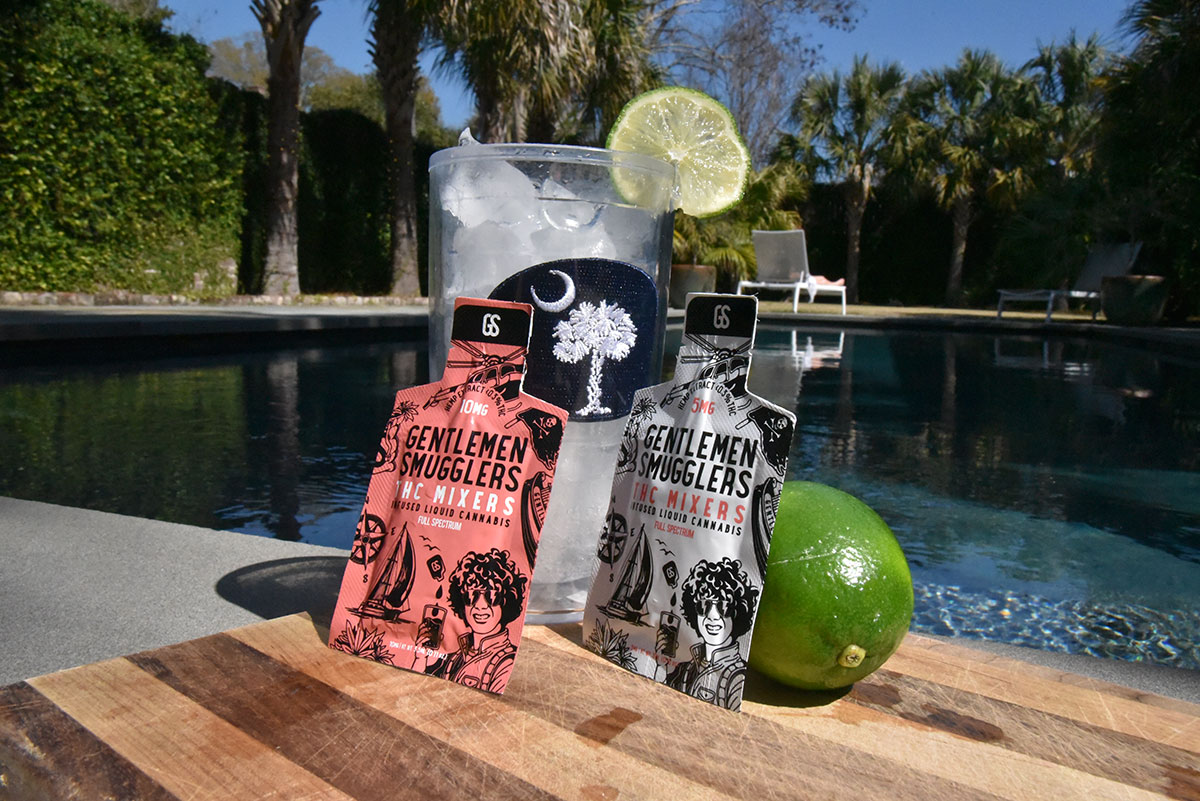[[{“value”:”
Barry Foy, the man at the center of a massive 1980s-era takedown of a group of college-educated, nonviolent marijuana traffickers from South Carolina, is back in business.
This time, 50 years later, he’s doing it with the law on his side.
Gentlemen Smugglers, a brand of cannabis- and hemp-derived products (depending on the laws of the states in which they are sold) that he runs with partner Kevin Harrison, is a forward-facing, fast-growing leader in an industry smack in the center of wellness and relaxation.
“The world didn’t just wake up one morning to find a marijuana dispensary open for business,” Foy said in an exclusive interview with the Charleston City Paper. “That’s what I talk about when I go and speak with these new companies entering the cannabis business, and their employees in dispensaries facing customers. I have to educate them to the fact that, you know, we started this.
“We were everything back in the day.”
The cult of marijuana that led to Ronald Reagan’s “War on Drugs” has become the culture.
Gentlemen Smugglers 1.0 to 2.0
Foy and his colleagues got a lot of attention in the 1980s when South Carolina’s then–U.S. Attorney, current Gov. Henry McMaster, and federal authorities launched Operation Jackpot to stem the proliferation of “gentlemen” marijuana smugglers. The feds nabbed and convicted more than 100 people, sending many like Foy to federal prison.
Foy said he and his crew brought nearly 250 tons of cannabis to East Coast shores from 1971 to 1986. But since then, public opinion and consumer consciousness has shifted dramatically when it comes to the legalization of cannabis and the plant’s derivative applications.
Decades after prison terms, Gentlemen Smugglers, the brand, was officially launched in 2022 after Foy and Harrison, an artist and film editor, connected around a Jackpot-inspired documentary project that failed to materialize.
According to Harrison, once that happened, “we said, ‘Well, what about creating a brand?’ ” Suddenly, rather than a one-time outlaw, Foy was an OG, a titan of a budding industry and an immediately formidable voice of authority on what most people still consider an emerging market.
“It’s interesting how people’s perceptions have changed over time. We live in a world of terms and references,” Foy said, “and obviously the idea of ‘recreational’ use in states out West, and in Massachusetts, where we launched, has changed the thinking fast.
“Here in South Carolina, though, we’re still in what is called a ‘Prohibition State,’ which is how states that today don’t allow cannabis are known. So, instead of alcohol, it’s about cannabis.
“The demonization of the plant has lessened some — hemp is legal here [in S.C.], for instance — but the idea of use … well, that’s not going to happen overnight.”
Today, Gentlemen Smugglers sells a range of consumables through dispensaries in eight states, from marijuana products such as vapes and smoke-ready pre-rolls (New York, Maryland, New Mexico and Massachusetts) to sippable hemp-based shots that even wellness aficionados have taken a shine to (Minnesota, North Carolina, Ohio and South Carolina).
Harrison said the company is in an interesting position, operating in an industry filled with legal challenges, interstate commerce issues, consumer education gaps, grower and supplier chain relationship hurdles and more. But the story behind the brand, how the original smugglers informed a generation, inspired a marketplace and boosted a cultural movement, is nothing but a boon.
“Telling people where we started, how we got where we are today, creates something of a love story,” Harrison said. “We aren’t plant-touching, meaning we don’t touch cannabis ourselves. We have partners for that, and that’s by design. Ours is a loyalty business model from start to finish … but, really, wasn’t it always that way?”
Foy chimed in.
“Yes! The difference is that now it’s much harder with the government involved. We had this thing figured out a long time ago. We were 25 then, in our seventies now. The world was wide open then and it still is. The main challenge, though, is the obstacles presented by too many rules, laws and regulations.”
Looking ahead
In another example of things coming full circle for Foy and his pals, the documentary project is back as a possibility.
Turns out, the story caught the attention of actress Renee Zellweger, whose production company, Harrison and Foy said, signed on to bring the project to life. Though negotiations are underway and details closely guarded, the partners say there is interest from multiple studios and streaming platforms, with a deal likely on the table imminently.
A podcast is also in development, with more content coming soon.
“I’m very optimistic about the future,” Foy said. “I feel really great about where we’re going. But if there’s one thing I’ve learned being in this game, this legal game, it’s not to count on anything. As we’ve seen over these past three years in business, nothing is easy. And if we thought it was going to be that way in the beginning, we were fools.”
Help keep the City Paper free.
No paywalls.
No subscription cost.
Free delivery at 800 locations.
Help support independent journalism by donating today.
[empowerlocal_ad sponsoredarticles]
“}]] Barry Foy, the man at the center of a massive 1980s-era takedown of a group of college-educated, nonviolent marijuana traffickers from South Carolina, is back in business.This time, 50 years later, he’s doing it with the law on his side. Read More


